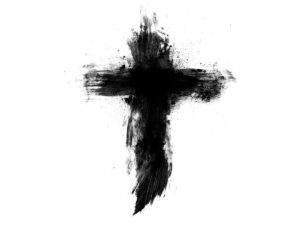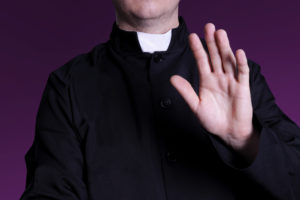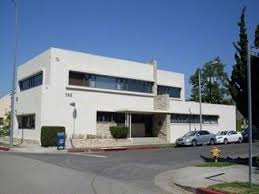
Religion can be uncomfortable to discuss at times; it should be no surprise why this topic often makes the lists of things that should not be brought up at dinner or a party. Religion not only focuses on one’s view of a god, it includes community, tradition, morals, and values. The topic can also elicit an emotional reaction based on past traumas or negative experiences that may have occurred in a religious community.
Throughout my clinical work, whether it was with gay men or with high-risk adolescent clients, I have seen how religion can play a significant role in a client’s life. It can be both a protective factor (something that can bring positivity and safety in one’s life) or it could be a root of significant emotional distress or psychological trauma. I feel honored to have been able to hear and reflect on some of the traumas that individuals have gone through during their experiences with religious abuse.
Religious abuse is a term that is not often discussed. Typically, the term “abuse” is often paired with physical (i.e. beating, hitting, strangling), sexual (i.e. rape, molestation, child pornography), emotional (i.e. threatening, mocking, shaming), and neglect (not providing basic needs) when we are talking about child abuse. We also may think about domestic abuse between partners or family members. Religious abuse is a form of abuse that has physical and psychological connotations. Religious abuse can come in the form of religious violence and persecution (such as the Salem Witch Trials) or another physical form of abuse such as beating or sexual abuse. The type of religious abuse that I typically work with in my practice as a gay men’s specialist therapist comes in the form of psychological and emotional abuse against gay men or gender minorities (trans or non-binary individuals). This may be in the form of mocking, shaming, and emotionally separating from an individual. Religious abuse may not always be obvious and can have subtle ways of affecting people. For my clients, this abuse can lead to lingering clinical symptomology, even much later in life, long after a client has escaped the abusive environment.
I am a gay man who grew up in a Christian home. I was very active in two churches throughout the earlier part of my life. I attended Sunday morning services, Sunday school, youth group, confirmation, Wednesday evening services during Lent, and first communion classes. I went on international mission trips, attended large statewide and nationwide conventions, and participated in many other outings and projects with my church communities. My religion was not just my faith in God, it was the cornerstone of my interests, community, and worldview.

Unlike some of the gay men that may be reading this, I did not experience religious abuse in a very forward and outright manner. For me, the emotional distress came from the lack of discussion around the option of having different sexualities or gender identities. For me, it was growing up in a community that made it very clear that heterosexuality, abstinence, and presenting in more traditional gender roles was the correct way to live. I felt a deep sense of shame and guilt for the incongruencies between what I was believing and the thoughts and urges that I was experiencing about members of my same sex. I thought that my community was more accepting than other Christian communities when I compared them to what I saw on television or in the news, but I was always fearful that I would lose everything if I spoke up about my sexuality. I spent my adolescent years feeling hopeless; I thought that it would be better to keep this secret hidden forever rather than risk losing everything and everyone. Since then, I have worked with many gay male clients who have lived with this same heavy burden of secrecy, denying the true self and having to cultivate a false safe to “get by”.
I attended a Christian university in Seattle for my undergraduate studies. The initial two years were challenging times in my life. I started to come out to myself and slowly share this information with others; something I had not thought possible only a few years before. First, I came out to some close friends, then dorm mates, classmates, friends from school, family members, and eventually more openly on social media. The more people that started to know the real me, the more conflicting the emotions became. Some people were openly accepting and some were not quite as kind. There were not many flat-out negative comments, but many comments such as “love the sinner, hate the sin” or “lifestyle choice” that came off as pejorative and disapproving. These comments, though small and not necessarily meant to be hurtful, can build up and shift one’s view of themselves and their sexuality. Therapists know that the internalization of these frequent negative messages can lead to low self-esteem and even self-sabotaging behaviors.

The implications of religious abuse in the LGBTQ community is being examined by researchers in the mental health field. A 2017 study by Babucarr J. Sowe, Alan J. Taylor, and Jac Brown examined how anti-gay rhetoric can affect the mental health of different LGBT subjects. This study looked at the effect of anti-gay prejudices that were rooted in religious and non-religious backgrounds. Their findings showed extensive negative psychological impacts from anti-gay prejudice from a religious organization. This, they found, included comments made that may have attempted to promote “acceptance” of the people, but not the act (like the “love the sinner, hate the sin” kind of talk).
Throughout my individual experiences, and the work that I have done with my gay male clients who have felt shame and incongruence between their faith, community, and sexuality, I can see that there is hope for making strides toward a positive and fulfilling life. When someone is able through gay-affirmative therapy to flip the self-blaming and shameful narrative of his life into a story of pride and resilience, progress is made toward a more robust sense of self, and enhanced mental health.

Depending on where you are in your development of your gender or sexual identity, I have suggestions for ways to increase congruence between your identity and yourself:
- Stay informed and educated. Read books and articles about LGBTQ topics. Keep up to date on current struggles and triumphs of the community. Read about the experiences of other LGBT people and how they were able to work through them. I find Alan Downs’s book The Velvet Rage to be a good starting place for LGBT people (particularly gay, cisgender men) to start if they are feeling that they are not living life to the fullest.
- If you want to continue to practice your faith, do it! I encourage you to find a church or community that is vocal about their inclusion and acceptance. This is not too challenging in a city like Los Angeles, but even many smaller towns may end up surprising you with what they have to offer.
- Practice living in the moment. It can be very easy to get swept up in emotions about past events or anxieties about the future. Take time to reflect on what you are feeling and doing in this one moment in time.
- Seek therapy with LGBT-identified therapists or at least LGBT-affirming therapists. If you look at the therapist finder on Psychology Today’s website, therapists can indicate if they are LGBT affirming. Again, I’m hoping that most therapists in 2019 would be LGBT-affirming, but this could be a helpful tool.

*******************************************
For more information on therapy or coaching services with GayTherapyLA, email Ken@GayTherapyLA.com, or call/text 310-339-5778.
(Reference: Sowe, Babucarr & Taylor, Alan & Brown, Jac. (2017). Religious Anti-Gay Prejudice as a Predictor of Mental Health, Abuse, and Substance Use. American Journal of Orthopsychiatry. 87. 10.1037/ort0000297.)


